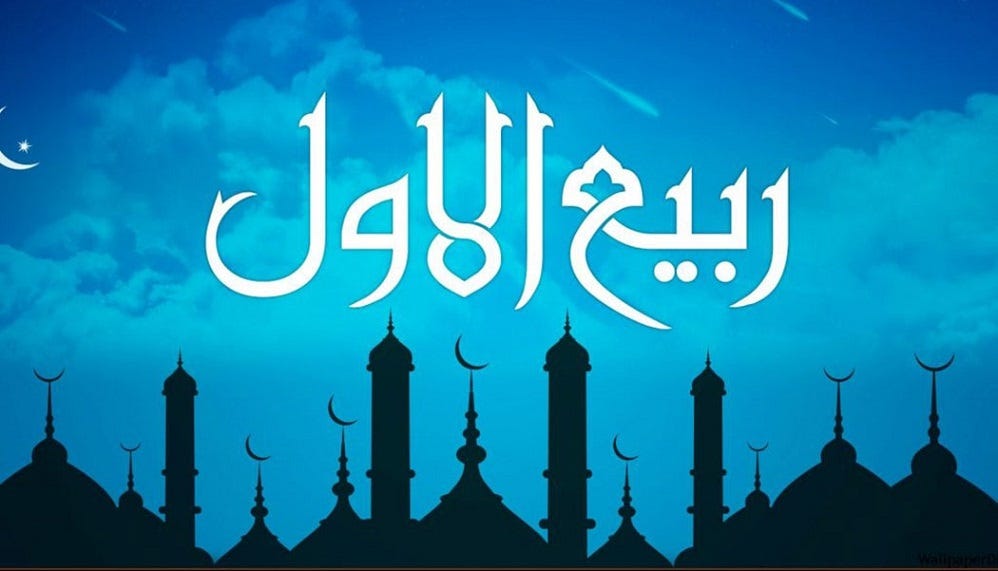What Happened on 12 Rabi ul Awal?

12 Rabi ul Awal is one of the most significant dates in the Islamic calendar, as it marks the birth of the final Prophet of Islam, Muhammad (PBUH). This day is celebrated by Muslims around the world with reverence and joy. Known as Mawlid al-Nabi or Eid Milad un-Nabi, it’s a time to reflect on the life and teachings of the Prophet, who played an integral role in shaping Islamic civilization and spreading the message of peace, compassion, and justice.
The 12th of Rabi ul Awal is not only about the birth of the Prophet but also holds deep spiritual significance for Muslims. The legacy of Prophet Muhammad (PBUH) continues to inspire millions across the globe, and this day serves as an opportunity to revisit his teachings and values. But what exactly happened on this day, and why is it so important? Let’s explore the history and events that make this day so special.
Birth of the Prophet Muhammad (PBUH)
The most significant event that took place on 12 Rabi ul Awal was the birth of the Prophet Muhammad (PBUH) in the year 570 CE in the city of Mecca, located in present-day Saudi Arabia. His birth marked the beginning of a new era for humanity, as he was sent by Allah to guide mankind to the right path. His life was a beacon of moral virtues, and his mission was to deliver the message of Islam, which emphasizes monotheism, justice, mercy, and compassion.
Prophet Muhammad’s (PBUH) early life was marked by challenges, as he was orphaned at a young age. However, he grew up to become a man of remarkable character, known for his honesty and integrity. He received his first revelation from Allah at the age of 40, and from that moment, his life changed forever as he began to preach the message of Islam.
Significance of 12 Rabi ul Awal in Islamic Tradition
For Muslims, the significance of 12 Rabi ul Awal extends beyond the mere celebration of the Prophet’s birth. It is a day to commemorate his life, character, and teachings. The Prophet Muhammad (PBUH) is regarded as a mercy to all of mankind, and this day allows Muslims to reflect on his contributions to the world.
One of the most important aspects of this day is that it brings people together in unity. In many Muslim-majority countries, 12 Rabi ul Awal is a public holiday, and people gather in mosques and community centers to recite naats (poetic praises of the Prophet), offer prayers, and listen to sermons about the life of the Prophet. Some communities also organize processions, where people march in the streets, singing songs of praise for the Prophet (PBUH).
Additionally, this day encourages Muslims to engage in acts of charity, kindness, and helping those in need, as these were among the core values that the Prophet Muhammad (PBUH) emphasized during his lifetime.
Different Perspectives on Celebrating 12 Rabi ul Awal
While many Muslims celebrate 12 Rabi ul Awal with great joy and enthusiasm, there are differing views within the Islamic world regarding the celebration of this day. Some Islamic scholars argue that while it’s important to remember the Prophet Muhammad’s (PBUH) life, there is no religious obligation to celebrate his birthday. They believe that following the Prophet’s teachings and practicing his Sunnah (traditions) on a daily basis is more important than celebrating a single day.
On the other hand, for those who do celebrate, the day provides an opportunity to renew their commitment to the teachings of the Prophet and to spread his message of peace and kindness.
The Passing of the Prophet Muhammad (PBUH)
Interestingly, there is also a historical debate about whether the Prophet Muhammad (PBUH) passed away on the same day he was born, i.e., 12 Rabi ul Awal. While some Islamic historians suggest that the Prophet left this world on this very day in the year 632 CE, others believe that the exact date of his passing is unclear. This dual association with both birth and death adds another layer of depth to the significance of 12 Rabi ul Awal for Muslims.
The Prophet’s passing marked the end of prophethood in Islam, but his message continues to live on in the hearts of Muslims worldwide. To this day, his teachings guide the way people live their lives, treat others, and worship Allah.
Mawlid al-Nabi Celebrations Around the World
In various parts of the world, 12 Rabi ul Awal is celebrated with different customs and traditions. In countries like Pakistan, Egypt, Turkey, and Indonesia, the day is marked by colorful festivities, public processions, and the distribution of food and sweets. Mosques and homes are illuminated, and people gather for special prayers and speeches that focus on the life and virtues of the Prophet Muhammad (PBUH).
In South Asia, for example, large crowds gather to attend Mehfil-e-Milad programs, where scholars and poets share insights into the life of the Prophet and recite poetry in his praise. Special meals are often prepared and shared with neighbors and the less fortunate, symbolizing the spirit of charity that the Prophet embodied.
The Message of 12 Rabi ul Awal: A Call to Follow the Sunnah
While the celebration of 12 Rabi ul Awal brings joy to Muslims, its deeper message is a call to action. The day reminds Muslims to follow the Sunnah of the Prophet Muhammad (PBUH) in their daily lives. The Prophet’s life was one of simplicity, humility, and service to others. He taught that success lies not in wealth or power but in piety, good character, and helping those in need.
By reflecting on the Prophet’s life and teachings on 12 Rabi ul Awal, Muslims can strengthen their faith and strive to live in a way that pleases Allah. Whether through acts of kindness, offering prayers, or supporting the less fortunate, this day serves as a reminder of the timeless values that the Prophet Muhammad (PBUH) upheld.
Conclusion
12 Rabi ul Awal is not just a date on the Islamic calendar—it’s a day filled with profound meaning and significance for Muslims around the world. It commemorates the birth of the Prophet Muhammad (PBUH), whose life and teachings continue to inspire billions. Whether one celebrates it with processions, prayers, or quiet reflection, the day serves as a powerful reminder of the values of peace, justice, and compassion that the Prophet preached.
By observing 12 Rabi ul Awal, Muslims renew their connection to their faith and their dedication to living a life modeled after the Prophet’s example.









